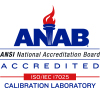A data logger is an electronic device that records data over time via internal sensors, external sensors, and probes. The small, battery-powered devices can measure a multitude of physical parameters to provide an environmental profile in which the data logger is placed.
Simply put, a data logger is an automated solution for applications that need to be monitored, helping ensure specific requirements are met without the hassle of continuously conducting manual checks.
| HOW DO DATA LOGGERS WORK? Inside every data logger is an intricate circuit board that includes memory storage and sensors, as well as a battery for deployment without the need for AC power. Different logger models are designed to measure a wide variety of parameters and ranges and be exposed to various environmental conditions. |  |
INPUT PARAMETERS
Data loggers can monitor a variety of input types, some are even designed with multiple channels for monitoring a combination of parameters simultaneously, such as temperature and humidity.
Here are the most common parameters:

TYPES OF LOGGERS & DATA RETRIEVAL
 Standalone
Standalone
Portable, battery powered data loggers that can be deployed for short- or long-term analysis. Once complete, the data logger must be manually retrieved then connected to a data logger interface to offload data from the logger to the computer.
 Wireless
Wireless
Whether using just a single data logger or a network of data loggers, data is transmitted in real-time directly to a central PC. This eliminates to need to manually retrieve the data logger and offload the data.
Once data has been collected, the data logging software allows users to view the data in a variety of different formats including statistic, graphic and tabular views. Workflows can be set up to automatically download data, create reports and save reports in specific folders to keep records organized for effortless compliance.
ADVANTAGES OF DATA LOGGERS
Unlike thermometers, meters and chart recorders, a single data logger archives thousands of readings to facilitate long-term trend analysis and review of historical data. Typically deployed at critical control points, data loggers don’t just quantify what is going on in an environment, they also create a time-stamped narrative that can be used to validate a process, improve efficiency or demonstrate compliance.
Data loggers not only create a reliable, streamlined process and electronic documentation for recordkeeping, they also require less manpower, fostering efficiency in the workplace. While data loggers can be useful in almost any setting, they are essential in industries that require regulatory compliance or depend on tight process control.







